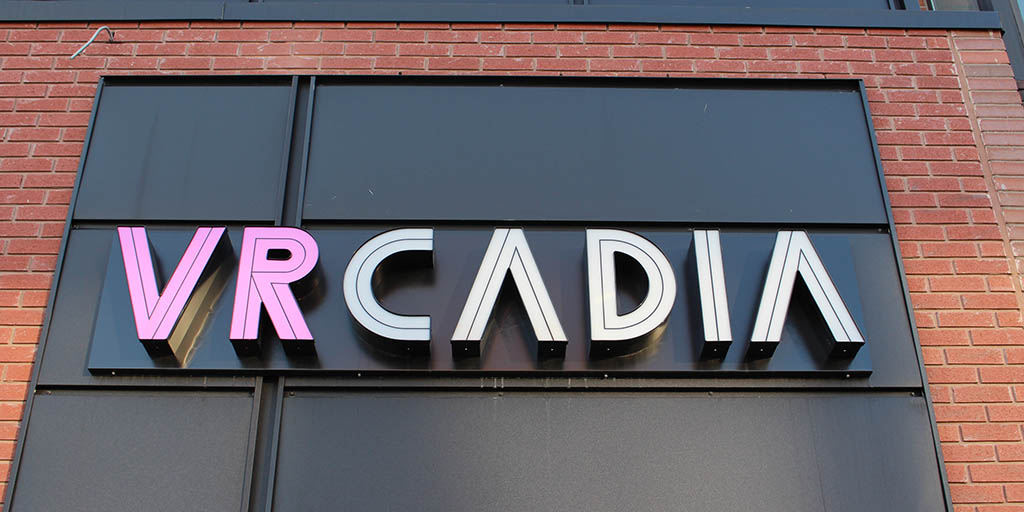VR as mental health therapy
 CREDIT: ANGELA MCINNES
CREDIT: ANGELA MCINNESVRcadia, located at 750 Richmond St., holds a group meditation event using virtual reality (VR) every Monday.
Virtual reality (VR) is a unique experience where the player can feel like they are a part of a video game. It’s exciting a personal level, which makes VR a great tool to help with mental health.
VRcadia, located at 750 Richmond St., is a VR lounge providing virtual experiences. Interrobang interviewed Daniel Kharlas, general manager and co-founder of VRcadia, who has a master’s degree in psychology and neuroscience, focusing on meditation and feedback through different technology. It was during his studies when he got involved in developing VR meditations and other wellness applications, and started to see the uses VR had for mental health.
“VR presents people the ability to create safe calming environments that can be personalized to each individual,” Kharlas said.
Kharlas explained that having a variety of different options allows people to make a safe space where they can feel naturally relaxed. Whether you prefer being in outer space, lying on a beach watching the sunset or climbing a mountain, VR allows these spaces to be easily accessible.
“Those things are all available to you in VR and some people might view that as an escape. Whereas, our perspective is more of a delivery of something that people are seeking, but they can’t get in their everyday life a lot of the time,” said Kharlas.
He said that a big part of VR’s use for mental health started when the technology was first used to help those with PTSD (post-traumatic stress disorder). Showcasing a flashback of traumatic events to someone within the context of VR allowed for that memory to be recontextualised over time to help them cope.
“Newer [psychology] models using VR with PTSD, anxiety and phobias has started to become more focused on creating ideal environments for explorations and opening their minds. Specifically, we call it [among] psychologists ‘openness to experience’. The ability to create something that makes someone feel more open because they might feel safe or blown away [emotionally] or experiencing awe,” Kharlas said.
VR is also beneficial for people who have mobility challenges. It gives people the ability to explore anything, anywhere, anytime whether you have challenges or not.
“[VR offers] the ability to go to Paris and walk the streets [or] go to Mount Everest and experience that without the sort of danger and risk that may be beyond your life as it is now. I think that it’s important that those with mobility challenges and those who don’t normally have access to new technologies get access to new technologies like that,” Kharlas said.
Kharlas gave some examples of games that have beneficial properties to mental health. Nature Tracks is a game where you can interact with and explore beautiful environments and create your own meditative space. Google Earth VR allows people to travel anywhere in the world without the long flights.
Tilt Brush is an art program that allows people to create pieces in 3D space. Games such as the music rhythm game Beat Saber offer opportunities to work out, with simple mechanics acting as a sort of gateway to other kinds of VR experiences.
Kharlas said that in a situation where someone comes to VRcadia and wanting the relaxing experience of VR instead of the entertainment, the staff will offer a variety of experiences by asking a lot of questions, such as are they scared of heights, do you like being under water, in space etc.
“Through those series of questions, we can figure out what the right experience is to offer them,” he said. “I think people would be surprised at how much possibilities there is in VR and how much value it can add as a tool for dealing with life and the difficulties that they come across. I would like to see a lot more of it.”
To learn more about VRcadia, check out their Facebook page or website at vrcadia.ca.
















